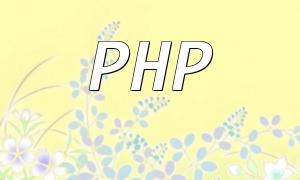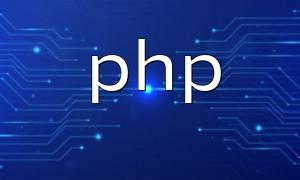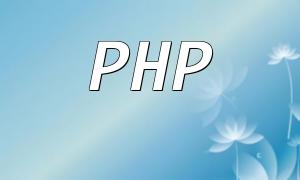In recent years, as the internet has developed rapidly, network security issues have become increasingly prominent. In this information age, ensuring the security and reliability of websites is becoming more and more crucial. As a widely used programming language for web development, PHP’s security is a key concern. This article will explore the low-level development principles of PHP, discuss common security vulnerabilities, and introduce protective measures against these attacks.
Before diving into PHP's low-level development principles, we first need to understand some basic concepts. PHP (Hypertext Preprocessor) is an open-source server-side scripting language widely used in web development. PHP scripts are often embedded within HTML to generate dynamic web pages. Compared to other programming languages, PHP is favored by developers due to its ease of learning, high efficiency, and performance.
Due to its widespread use, PHP has also become a target for cyber-attacks. Here are some common security vulnerabilities and how to prevent them:
Cross-Site Scripting (XSS) is a type of attack that exploits vulnerabilities in web applications. Attackers inject malicious scripts that are executed when users visit the affected webpage. To protect against XSS attacks, developers should filter and escape user inputs to ensure that the input is not executed as code. Additionally, using the HttpOnly flag prevents JavaScript from accessing and modifying user cookie information.
SQL injection is an attack where malicious SQL code is inserted into input fields in order to extract sensitive data. To prevent SQL injection, developers should use prepared statements or stored procedures to handle user inputs and use parameterized queries instead of concatenating SQL statements. Additionally, enabling PHP's Magic Quotes feature can automatically escape user input to reduce the risk of SQL injection.
File inclusion vulnerabilities occur when insecure inclusion functions in web applications allow the execution of malicious code. To prevent these types of vulnerabilities, developers should avoid using unsafe functions like include and require. It is recommended to use include_once and require_once to ensure that files are not included multiple times.
In addition to the aforementioned vulnerabilities, PHP developers can implement other measures to enhance website security. These include:
In summary, understanding PHP's low-level development principles is fundamental to enhancing website security. By learning PHP’s internal workings, developers can better identify and mitigate common security vulnerabilities. By implementing security measures such as filtering and escaping user input, using prepared statements for SQL queries, and avoiding unsafe file inclusion functions, developers can significantly reduce the risk of attacks. In today’s internet environment, safeguarding the security of websites is a responsibility every PHP developer should take seriously and strive to achieve.










